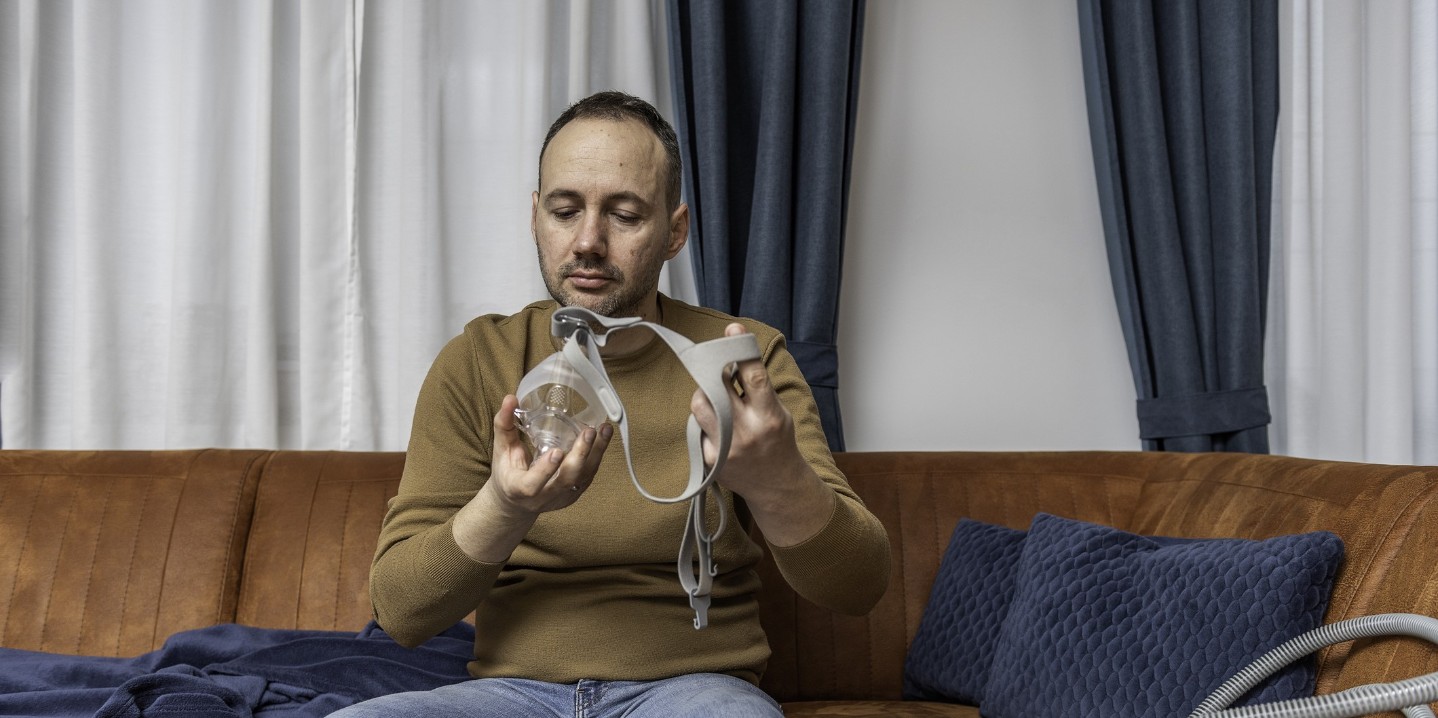Fueling Your Family's Future: A Doctor's Perspective on National Nutrition Month
MAR 01, 2026Good nutrition is about building a foundation for a vibrant, energetic, and disease-resistant life for you and your loved ones.
Read More
You know good sleep makes you feel better. But did you know lack of sleep is linked to increased risk of chronic diseases like heart disease and diabetes.
Too many of us aren’t getting proper rest due to sleep apnea - those pauses in breathing that disrupt sleep. If you think it’s just about snoring, think again. People who don’t snore can also have sleep apnea or sleep-disordered breathing. Two signs are waking with a headache or still feeling tired after a full night’s sleep.
The gold standard for treatment has long been the Cpap, which stands for the continuous positive airway pressure. This simple device keeps your airways open while you sleep with a gentle flow of air.
It works well, but it doesn’t work for everyone. Two out of five people who try it are unable to use it long-term due to their discomfort with the machine.
Fortunately, we have good treatment alternatives for those who do not do well with the Cpap machine. These include medications, devices and surgical procedures.
Weight loss is a common recommendation because weight plays a significant role in sleep apnea. What a lot of people don’t know is that the tongue has three different fat pads that are responsive to weight gain. Even losing a few pounds can make a difference for some people.
A newer device for sleep apnea is called the Hypoglossal Nerve Stimulator. It stabilizes the throat using a pacemaker-like device to gently stimulate the throat muscles. This prevents the tongue from blocking the airway while you sleep.
This device is implanted surgically under the skin of the neck and chest during an outpatient surgery. At night, you simply turn the device on with a remote control. It syncs with your breathing patterns to deliver mild stimulation which keeps airways open.
The third option is surgery to help you breathe better through your nose. Issues we can resolve with minor surgery include a deviated septum, narrow turbinates and large tonsils in the back of the throat.
Correcting these issues can make it easier to breathe, which can reduce snoring and also make using a Cpap more comfortable to use, if needed.
For people with untreated sleep apnea, the first step is a sleep study. This can now be done in the comfort of home rather than in a hospital or sleep clinic.
The results will determine if you have snoring, sleep apnea or sleep-disordered breathing. You can then talk with an ENT specialist about which options would be best for you. If you’re snoring through the night or waking up tired, don’t wait for better sleep. With this wide array of treatment options, more people are finding lasting relief from sleep apnea. To find the treatment that’sright for you go to CHIhealth.com/ENT.

Good nutrition is about building a foundation for a vibrant, energetic, and disease-resistant life for you and your loved ones.
Read More
Raynaud's phenomenon is a rare disorder that affects the blood vessels, most commonly in the fingers and toes, but sometimes also in the nose, ears, or lips.
Read More
Winter brings beautiful snowy landscapes and cozy evenings, but the cold, dry air—indoors and out—can be harsh on our hands, leading to dryness, cracking, and even more serious issues like frostbite. Protecting your hands is crucial for comfort and s...
Read MoreWhen you need local health information from a trusted source, turn to the CHI Health Better You eNewsletter.